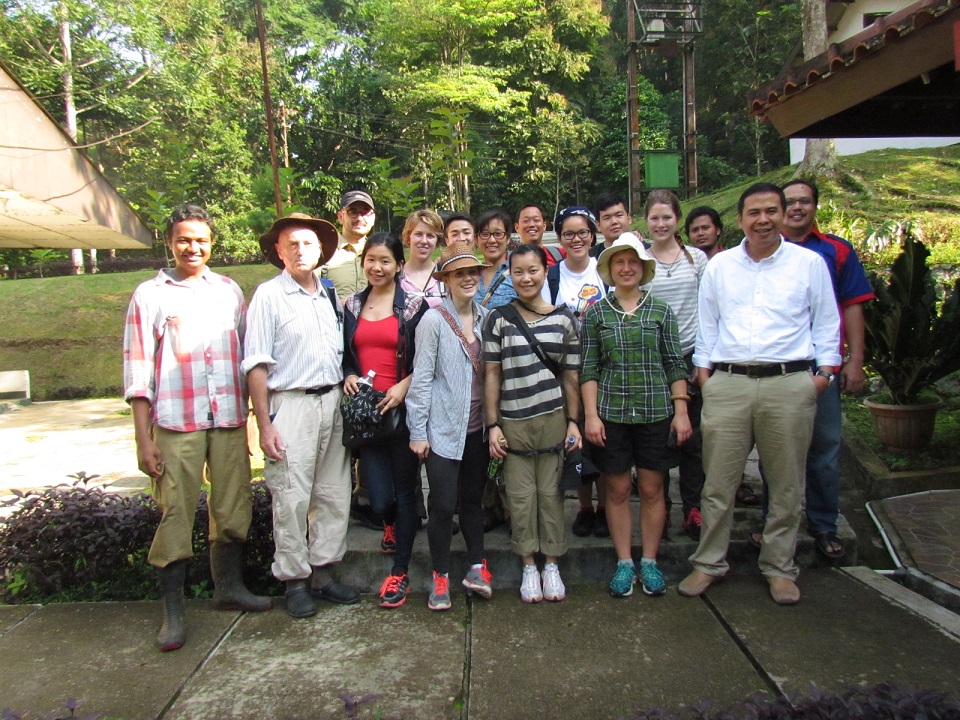
Gunung Walat, Sukabumi – Monitoring and Evaluation Project for Timely Responses (METR), Summer Program of University of British Columbia Canada on 19-31 May 2014 in Gunung Walat University Forest, Sukabumi.
Monitoring and evaluation activities in the Gunung Walat Education Forest needed to be carried out on an ongoing basis by various certain parties. This was to maintain continuity between natural vegetation, forest products, and communities around the forest, as well as what has been done by the University of British Columbia, Canada.
With the theme of Monitoring and Evaluation for Timely Responses (METR) Project, this practice was attended by 12 students of University of British Columbia Canada, representatives of IPB Faculty of Forestry lecturers, and staff of Gunung Walat University Forest.
During their stay at Gunung Walat, activities focused on utilizing agathis and pine stands, studying the springs function of Gunung Walat University Forest and agroforestry activities by communities around Gunung Walat.
“We spent quite a lot of time studying the perceptions of the surrounding community about the existence of Gunung Walat. This is an important thing for us because IPB when was making this certainly examined the social conditions that were here, so we certainly want to reevaluate” said a lecturer at the University of British Columbia, Prof. Criss Benneth.
According to him during his practice at Gunung Walat, there were two messages that must be considered by IPB. First, regarding the zero-cutting policy that had been applied for years in whether there a need for tree renewal considering that the resulting sap production will experience a decrease if the trees are used.
“At one hand, there is a zero-cutting policy and it is highly recommended. But the challenge is whether to stick to the no-cutting policy and deal with the reduction of sap or do replanting in this forest. Secondly, the most important thing is when we explore the region, how many dialogues was that involve the community with the management of Gunung Walat? I think that needs to be improved again” he said.
Prof. Criss urged Gunung Walat to continue to develop all the potential of human resources, natural resources, and maintain a dialogue with the community around the forest in order to produce mutual benefits.
“I hope IPB can continue the prospect here because this forest is still under its protection, which certainly needs support” he concluded.
[gwuf]
Photo gallery click here
Download news click here
